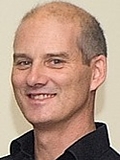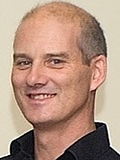Differential Proteomics and Post Translational Modifications profile in GNE Myopathy
Projektleiter:
Finanzierung:
Stiftungen - Sonstige;
GNE Myopathy is a unique neuromuscular adult onset disease characterized by slowly progressive distal and proximal muscle weakness, and a typical muscle pathology including autophagic vacuoles and filamentous inclusions. This disorder is caused by missense recessive mutations in GNE, the gene coding for UDP-GlcNAc 2-epimerase/ ManNAc kinase. Although this bifunctional enzyme is well known as the limiting factor in the biosynthesis of sialic acid, no clear events have been recognized to account for the muscle atrophic pathology. In the last years, various directions have been undertaken by our and other laboratories to try and unravel novel potential functions for GNE, which could lead to better insights into the pathogenesis of the disease. The goal of this study is to broaden our knowledge on GNE functions by a more comprehensive analysis of the molecules involved in the disease. To unravel new clues on the biological pathways leading to GNE Myopathy we will apply high throughput proteomic and post translational modifications analyses. For this purpose we will examine the proteins from cultures of muscle cells established from several GNE Myopathy patients carrying different mutations, to determine their proteomic profile by reversed-phase capillary chromatography coupled on line to tandem mass spectrometry (uLC-MS/MS). Data will be analyzed by the MaxQuant software yielding identification and quantification of the peptides. Post translational modifications such as phosphorylation, ubiquitination, O-GlcNAcylation and advanced glycation endproducts (AGE) will also be determined accordingly. We will then establish the differential profile of the GNE mutated samples versus controls. After appropriate methodological validation of representative molecules, the identified differentially expressed and modified proteins will be subjected to bioinformatics tools such as QIAGEN’s Ingenuity® Pathway Analysis software to unravel enriched molecular functions and canonical pathways involved in GNE Myopathy pathophysiology. We anticipate that at least some of the genes/pathways/functions unravelled in these studies will give us additional insights in the biological aspects of the pathogenesis of GNE myopathy. Some of these genes/ pathways/functions could be then addressed as treatment targets to alleviate the
Kontakt

Prof. Dr. Rüdiger Horstkorte
Martin-Luther-Universität Halle-Wittenberg
Institut für Physiologische Chemie
Hollystr. 1
06114
Halle (Saale)
Tel.:+49 345 5573873
weitere Projekte
Die Daten werden geladen ...


